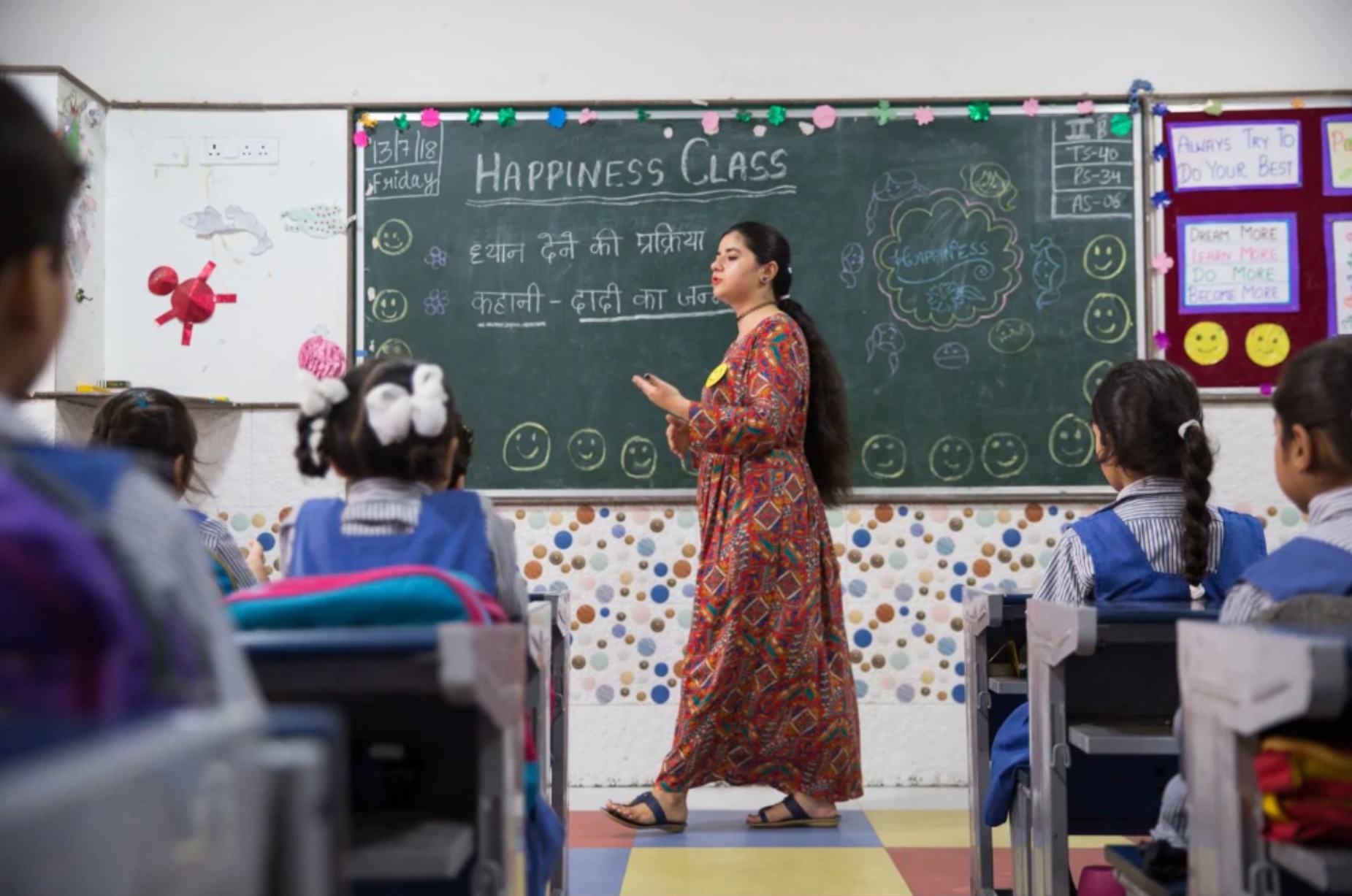Post liberalization, we’ve often come across the statement that “English is the language of the elite” However, with each passing day I feel this notion changing in ways that are not easy to comprehend. We come from a nation that has more than 19,500 mother languages but somehow every student who learns a vernacular language, be it from a multistoried private school or a small government school across the street has the dream of studying abroad and becoming a global citizen for which English becomes a necessity.
Perhaps, this dream might sound unrealistic at first for those coming from low-income backgrounds, but these aspirations are supported by parents who wish to impart quality education to their child. A term used quite often, the aspiration of providing ‘Quality Education’ to their child is what pushes them to look beyond their conventional beliefs and motivates them to break our boundaries.
The first step that a parent takes to cross that boundary and move beyond their comfort zone is to enroll their child into an English-medium school. Despite being from a rural background, parents want their students to be fluent in english as it opens a window of job opportunities, helps them to communicate with others fluently and gives them a sense of confidence that is unparalleled. However, only 10.4% of the government schools offer English as a subject. This is where the dilemma arises for those who cannot afford to send their students to highly maintained private schools, only to realize that Budget Private Schools is another alternative in the Indian education system.
The name “Budget Private Schools” might look like an oxymoron because we often don’t associate budget with private. The common Indian’s notion of privatization in every sphere is their lack of affordability to avail those services. However, these schools have played a critical role in improving education quality and access at an affordable cost, especially for children coming from low income families. Since their establishment, Budget Private Schools did not receive the recognition that they deserved, but with higher enrollment rates in such schools, we see the gap between public and private education reducing as they act as silent revolutionaries to provide community based, approachable learning to their students with the best interest in their minds.
My familiarity with Budget Private Schools began as I stepped foot into a project run by the Centre for Civil Society called “Project Bolo English.” The project aims to equip students from low income backgrounds with spoken English, by providing them free access to premium mobile applications. In my limited interactions with students who had the dreams of becoming confident English speakers, I came to one simple conclusion- the problem is not lack of potential, but rather the lack of a nurturing environment to maximize it.
Approximately 42% of unaided private schools provide English as the medium of instruction, however students enrolled in Budget Private Schools often struggle in terms of Grammar, Vocabulary and more particularly the confidence to speak English. These problems highlighted the need for a Project like Bolo English as an external intervention to help students in their journey towards Spoken English. The project was found of paramount importance by State Associations as well as school principals in terms of making learning English as easy and fun as possible. As the team continuously engaged with students and their parents, we could see a sense of pride and confidence developing in their personality.
Since its launch in July 2020, the project has provided access to the application to more than 30,000 students with nearly 1200 students completing 1 CEFR module on the application. The project has had a strong footprint in the states of Haryana, Tamil Nadu and Telangana with continuous engagement through Student Cafes, Webinars and Outreach events.
However, the impact that we achieved in a period of one year despite the pandemic turning over every effort was due to the teachers: I like to describe them as heroes who don’t wear capes. Despite having the most tedious schedule of managing the household and not getting their salaries for months, they did not leave a single opportunity to follow-up with the students and ensure their interest in the project.
We live in an era where the level of English determines the wage you receive,the way you express, and the way you showcase yourself. Project Bolo English is now on a mission to ensure that every student receives the “privilege” of speaking English which is now a necessity.
To conclude, I do not believe that students are containers into whom knowledge must be put. It is a two-way learning street that requires educators to refigure themselves and mould themselves into a situation similar to their students. As we move forward with the support of Association Leaders, Principals, Teachers and parents, and with the realization that English is not just an academic discipline but a life skill, we are ready to learn and unlearn along the way to support a child’s journey from Education to Employment.
Post Disclaimer
The opinions expressed in this essay are those of the authors. They do not purport to reflect the opinions or views of CCS.





